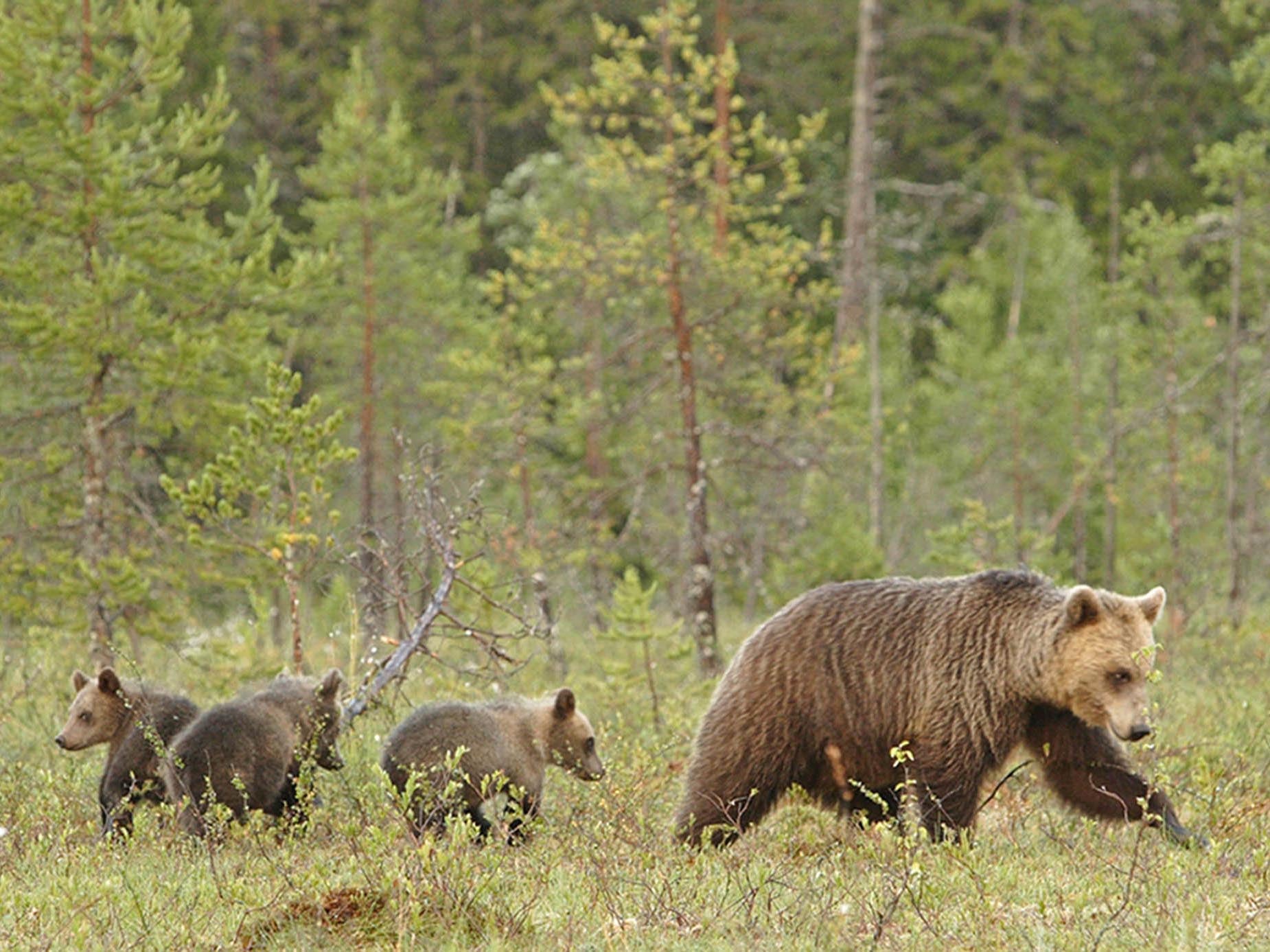The Independent's journalism is supported by our readers. When you purchase through links on our site, we may earn commission.
Female bears evolve to raise cubs for longer due to Swedish law banning hunting of families
Scientists discover young stay with mother an extra 12 months compared to 20 years ago

Female bears have adapted to a law in Sweden banning the hunting of mothers with their young by increasing the time they spend raising their cubs.
Scientists discovered the length of time brown bear cubs stayed with their mothers increased from 18 months 20 years ago, to 2.5 years today.
Extending the care of their offspring by a year means the female bears have fewer breeding opportunities. But the research showed this was outweighed by longer survival rates of both mothers and cubs.
A team from Sherbrooke University in Canada, the University of Southeast Norway, and the Norwegian University of Life Sciences (NMBU) analysed data on Scandinavian brown bears spanning 22 years.
"Man is now an evolutionary force in the lives of the bears," said lead researcher and NMBU professor Jon Swenson.
In Sweden, anyone can hunt bears without needing a specific licence. Hunters shot around 300 of them each year between 2010 and 2014.

However, like many countries where bear hunting is legal, Sweden bans the shooting of bears in family groups. Mr Swenson said: "A single female in Sweden is four times more likely to be shot as one with a cub."
The researchers found the unusual behaviour was spreading through Swedish bear populations.
While it would not normally be a good strategy from an evolutionary perspective, the female bears' increased survival chances largely counteracted the reduced birth rate.
"This is especially true in areas of high hunting pressure," said Mr Swenson. "There, the females that keep the cubs the extra year have the greatest advantage."
The number of females raising their cubs for an extra year rose from seven per cent to 36 per cent between 2005 and 2015.
The research was published in the journal Nature Communications.
Additional reporting by PA
Join our commenting forum
Join thought-provoking conversations, follow other Independent readers and see their replies
Comments
Bookmark popover
Removed from bookmarks